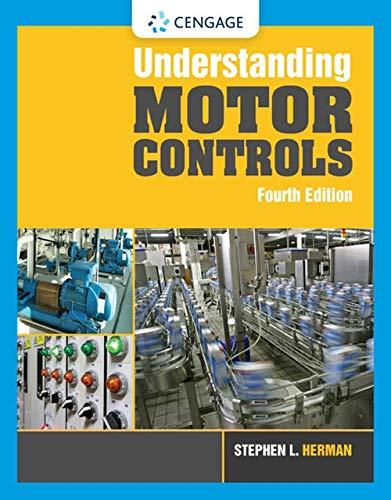PROBLEM 2 (20 POINTS) A number of studies have been conducted on the diffusion of substances such as water and oxygen in plastics with particular relevance to the food packaging industry. It turns out that at 30°C, the diffusivity of water in polyvinylidene chloride (PVDC) (a.k.a. Saran™) is 9.1×108 cm²/s.1 Imagine you cover a glass with 100 mL (5.55 mol) of water with a 10 μm thick PVDC film as depicted to the right. Assuming that the water concentration on the lower surface (inside the glass) of the PVDC is 1.7 mol/m³ (based on the equilibrium vapor pressure of 4.25 kPa for water at 30°C) and "dry air" conditions (no water, a.k.a. 0% humidity) are maintained outside the glass, determine how long (in years!!!) it will take for the water to completely evaporate from the glass assuming it can only escape the glass by diffusion through the PVDC film and that the temperature is constant at 30°C. The diameter at the top of the glass is 10 cm.
PROBLEM 2 (20 POINTS) A number of studies have been conducted on the diffusion of substances such as water and oxygen in plastics with particular relevance to the food packaging industry. It turns out that at 30°C, the diffusivity of water in polyvinylidene chloride (PVDC) (a.k.a. Saran™) is 9.1×108 cm²/s.1 Imagine you cover a glass with 100 mL (5.55 mol) of water with a 10 μm thick PVDC film as depicted to the right. Assuming that the water concentration on the lower surface (inside the glass) of the PVDC is 1.7 mol/m³ (based on the equilibrium vapor pressure of 4.25 kPa for water at 30°C) and "dry air" conditions (no water, a.k.a. 0% humidity) are maintained outside the glass, determine how long (in years!!!) it will take for the water to completely evaporate from the glass assuming it can only escape the glass by diffusion through the PVDC film and that the temperature is constant at 30°C. The diameter at the top of the glass is 10 cm.
Understanding Motor Controls
4th Edition
ISBN:9781337798686
Author:Stephen L. Herman
Publisher:Stephen L. Herman
Chapter44: Semiconductors
Section: Chapter Questions
Problem 3RQ: The two materials most often used to produce semiconductor devices are ____________ and...
Related questions
Question
This problem is not part of a graded assignment. Solve this problem and show all of the work

Transcribed Image Text:PROBLEM 2 (20 POINTS)
A number of studies have been conducted on the diffusion of
substances such as water and oxygen in plastics with
particular relevance to the food packaging industry. It turns
out that at 30°C, the diffusivity of water in polyvinylidene
chloride (PVDC) (a.k.a. Saran™) is 9.1×108 cm²/s.1
Imagine you cover a glass with 100 mL (5.55 mol) of water
with a 10 μm thick PVDC film as depicted to the right.
Assuming that the water concentration on the lower surface
(inside the glass) of the PVDC is 1.7 mol/m³ (based on the
equilibrium vapor pressure of 4.25 kPa for water at 30°C)
and "dry air" conditions (no water, a.k.a. 0% humidity) are
maintained outside the glass, determine how long (in years!!!)
it will take for the water to completely evaporate from the
glass assuming it can only escape the glass by diffusion through the PVDC film and that the
temperature is constant at 30°C. The diameter at the top of the glass is 10 cm.
Expert Solution
This question has been solved!
Explore an expertly crafted, step-by-step solution for a thorough understanding of key concepts.
Step by step
Solved in 2 steps with 1 images

Recommended textbooks for you

Understanding Motor Controls
Mechanical Engineering
ISBN:
9781337798686
Author:
Stephen L. Herman
Publisher:
Delmar Cengage Learning

Precision Machining Technology (MindTap Course Li…
Mechanical Engineering
ISBN:
9781285444543
Author:
Peter J. Hoffman, Eric S. Hopewell, Brian Janes
Publisher:
Cengage Learning

Refrigeration and Air Conditioning Technology (Mi…
Mechanical Engineering
ISBN:
9781305578296
Author:
John Tomczyk, Eugene Silberstein, Bill Whitman, Bill Johnson
Publisher:
Cengage Learning

Understanding Motor Controls
Mechanical Engineering
ISBN:
9781337798686
Author:
Stephen L. Herman
Publisher:
Delmar Cengage Learning

Precision Machining Technology (MindTap Course Li…
Mechanical Engineering
ISBN:
9781285444543
Author:
Peter J. Hoffman, Eric S. Hopewell, Brian Janes
Publisher:
Cengage Learning

Refrigeration and Air Conditioning Technology (Mi…
Mechanical Engineering
ISBN:
9781305578296
Author:
John Tomczyk, Eugene Silberstein, Bill Whitman, Bill Johnson
Publisher:
Cengage Learning

Principles of Heat Transfer (Activate Learning wi…
Mechanical Engineering
ISBN:
9781305387102
Author:
Kreith, Frank; Manglik, Raj M.
Publisher:
Cengage Learning

Welding: Principles and Applications (MindTap Cou…
Mechanical Engineering
ISBN:
9781305494695
Author:
Larry Jeffus
Publisher:
Cengage Learning

Electrical Transformers and Rotating Machines
Mechanical Engineering
ISBN:
9781305494817
Author:
Stephen L. Herman
Publisher:
Cengage Learning